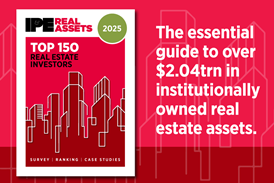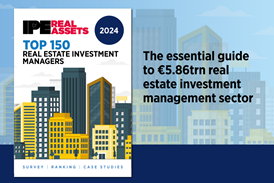The European Securities and Markets Authority (ESMA) has recommended extending AIFMD ‘passports’ – subject to some conditions – to nine non-EU countries, including the US, Hong Kong and Singapore.
ESMA’s recommendations to the European Commission included some caveats, such as concerns about creating an “unlevel playing field” with the US.
But they also bring regulators closer to opening up AIFMD marketing rules to international investment managers.
Currently, non-EU investment managers are unable to market real estate, private equity and hedge funds to European investors under the AIFMD passport regime, and have to use individual private placement rules (NPPRs) in the various European countries.
Last July, ESMA only recommended extending passports to Guernsey and Jersey, and partially gave the green light to Switzerland. This , as regulators might want to wait until more countries had passed ESMA’s assessment.
The latest recommendation, which will now be considered by the European Commission, Parliament and Council, means that the EU is more likely to move ahead with extending passports through a delegated act.
Jeff Rupp, director of public affairs at European real estate association INREV, said such a delegated act could now be expected.
ESMA said there were “no significant obstacles” in extending the passport to Canada, Japan, Switzerland, Hong Kong, Singapore and Australia, although it raised some concerns regarding the latter three.
The US also passed four of the assessment criteria, but ESMA said there were competitive risks that would need to be mitigated.
“ESMA considers that in the case of funds marketed by managers to professional investors which do involve a public offering, a potential extension of the AIFMD passport to the US risks an un-level playing field between EU and non-EU AIFMs,” it said.
“The market access conditions which would apply to these US funds in the EU under an AIFMD passport would be different from, and potentially less onerous than, the market access conditions applicable to EU funds in the US and marketed by managers involving a public offering.”
ESMA said it could not give definitive advice for Bermuda and the Cayman Islands, regarding the criteria on investor protection and effectiveness of enforcement, because both countries were in the process of implementing new regulatory regimes.
The recent UK referendum has also created uncertainty over the future shape of AIFMD, and has sparked the prospect of the UK – where many international investment managers base their European headquarters – having to apply for its own passport.
A spokesperson for InvestEurope, formerly the European Private Equity & Venture Capital Association (EVCA), told IPE Real Estate: “With the UK voting to leave the EU, the development of mechanisms that promote rather than hinder the flow of capital across borders has become even more important.”
The organisation welcomed the advice on extending the marketing passport, although it urged regulators not to end NPPRs when passporting had been extended.
Michael Collins, the InvestEurope’s public affairs director, said: “The AIFMD passport will not be suitable for all non-EU fund managers, not least because of the cost and compliance burden it entails, so we must find other ways to ensure investor choice is protected.
“A workable passport regime, sitting alongside national private placement regimes, is therefore essential.”







